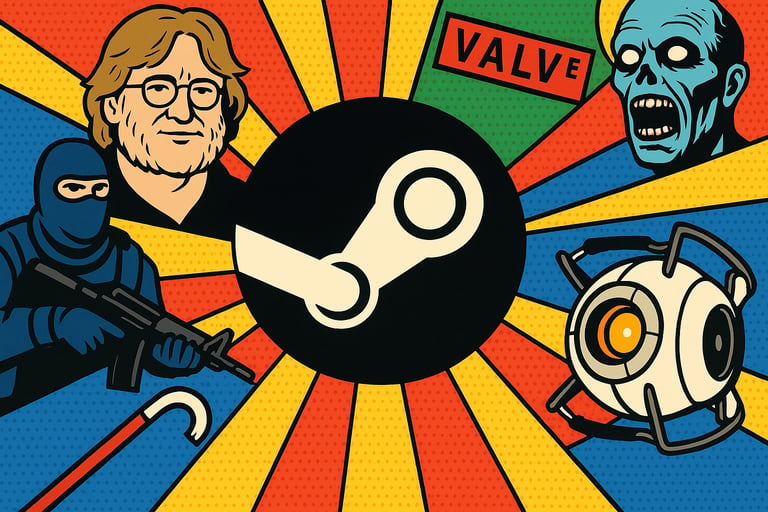Steam: The Silent King of PC Gaming
A mysterious company, billions in profit, and a digital empire growing quietly in the background.
7/7/20252 min read
The digital store that changed everything
If you play on PC, you probably use Steam.
Even if you don’t, you should know this platform — launched by Valve in 2003 — has become the economic engine of an entire industry.
What started as a way to update games and prevent piracy is now a store, a social network, an anti-cheat system, and more.
With over 100,000 games and 170 million active monthly users, Steam dominates PC gaming. It’s estimated to control around 70% of the global market.
A money-printing machine
Steam takes an average 30% cut from every sale.
In 2021 alone, those commissions brought in about $2 billion in revenue, with $1.3 billion in profit —
all with just over 300 employees, fewer than 80 of whom work directly on Steam.
Do the math: over $11 million in profit per employee.
More than Jane Street. More than Citadel Securities.
And that’s just from commissions — Valve also makes money from its own games (Counter-Strike, DOTA, Half-Life) and in-game purchases.
An unstoppable platform
In 2024, Steam hit an all-time high in concurrent users.
Analysts say it’s growing fastest in Asia, especially China, and doesn’t face any serious competitors.
Not even Epic Games, despite Fortnite and generous revenue shares for developers, has managed to slow it down.
A company like no other
Behind Steam is Valve, one of tech’s most unusual companies.
No formal hierarchy. No managers. Employees self-organise. Their desks are on wheels, so they can roll around the office and join whichever team they want.
This “flat” structure is laid out in Valve’s surreal 56-page employee handbook — which reads more like a utopian startup manifesto than a corporate manual.
The result? Valve releases very few games (Half-Life 3 has become a meme), but makes a lot of money.
Most employees stay for about ten years, get rich, and move on.
Meanwhile, founder Gabe Newell — beloved online — reportedly lives on one of his five boats, and is investing in brain-computer chips.
The dark side: lawsuits and moderation
Valve is currently facing a class-action lawsuit in the US for allegedly abusing its dominant market position and keeping commission rates artificially high.
Steam has also faced criticism over extremist content and Nazi symbols appearing in its forums, with moderation described as weak or nonexistent.
The company’s libertarian approach is clear:
“We don’t decide what’s okay or not. Players and developers should be free.”
That may be a philosophical stance — but it’s also great for business.
The future? No one dares challenge it (for now)
For now, Steam is untouchable. Its numbers keep growing, and Valve continues to operate with no investors, no public listings, and no pressure to change.
But if Gabe Newell ever stepped away — or if the lawsuits reveal more than expected — this digital empire could become a very tempting acquisition for a hungry Big Tech giant.
Until then, Steam remains what it’s always been:
PC gaming’s quiet, unshakable fortress.


Perpi Ltd
159A Portnall Road, London, W9 3BN, United Kingdom
© 2025. All rights reserved.
